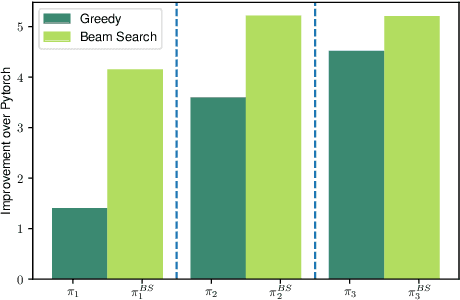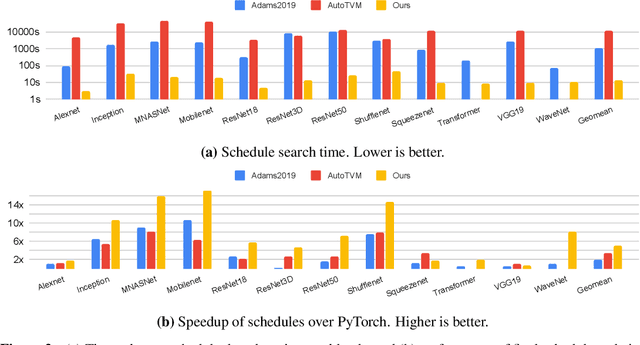Value Function Based Performance Optimization of Deep Learning Workloads
Paper and Code
Nov 30, 2020


As machine learning techniques become ubiquitous, the efficiency of neural network implementations is becoming correspondingly paramount. Frameworks, such as Halide and TVM, separate out the algorithmic representation of the network from the schedule that determines its implementation. Finding good schedules, however, remains extremely challenging. We model this scheduling problem as a sequence of optimization choices, and present a new technique to accurately predict the expected performance of a partial schedule. By leveraging these predictions we can make these optimization decisions greedily and rapidly identify an efficient schedule. This enables us to find schedules that improve the throughput of deep neural networks by 2.6x over Halide and 1.5x over TVM. Moreover, our technique is two to three orders of magnitude faster than that of these tools, and completes in seconds instead of hours.
 Add to Chrome
Add to Chrome Add to Firefox
Add to Firefox Add to Edge
Add to Edge